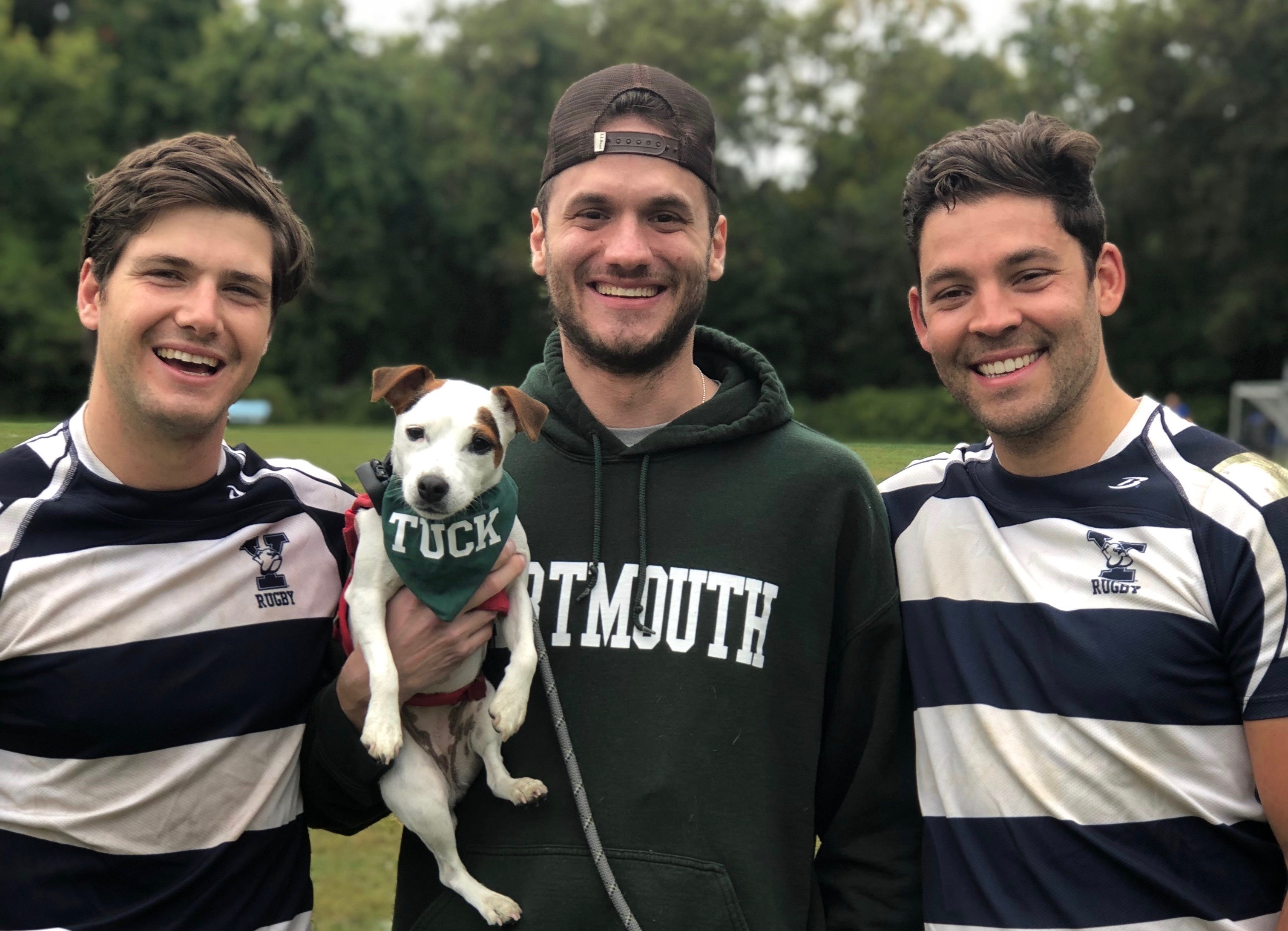All throughout my life, I have sought CF care from a number of clinics simply because I have lived in a bunch of different places. Experience tells me that transitioning from clinic to clinic is equal parts awkward, uneasy, exciting, refreshing and hopeful.
When I was little, I started my CF journey at Cincinnati Children’s Hospital. My time there was, believe it or not, short lived. I only spent a few years receiving care in Cincinnati before we packed up and moved to New York. In fact, other than when I was diagnosed at age 2, I never even had to go inpatient there.
Quite frankly, I was too young to remember transitioning care from Cincinnati to New York, but one day I was getting care in southern Ohio, the next, Long Island, New York. After a brief time spending days at the CF Center on Long Island, I transitioned to pediatric care at Columbia University Medical Center.
When I was 19, and following my freshman year of college in Boston, I did a bit of a double transition – I moved from the pediatric side of Columbia onto the adult side, and then at the urging of my brand-new adult doctor, I sought managed care from Boston Children’s Hospital when I went back to Beantown to start my sophomore year (kind of ironic that after transitioning to adult care, I went right back to pediatric in my college town). That brief 4-5-month period of meeting new doctors and starting fresh in 2010 was wild. I had developed a long-standing relationship with my pediatric MD at Columbia, and then in the blink of an eye, I was learning about cystic fibrosis from the adult perspective. After having lived through that, I think it’s important for people with CF who study away from home to get familiar with a CF doctor in a new town. Managed care definitely helped when I was away at school!
Now, I am back in New York at Columbia (I was sad to see my time at Boston Children’s end following my college graduation), but will soon return to the managed care lifestyle as I restart my student career in Hanover, New Hampshire this summer.
Walking into the brand-new CF clinic for the first time is always like being the new kid at a new school. It’s impossible to remember everyone’s names, responsibilities and routine of how things are done.
There are always going to be subtle differences between clinics, but even the smallest change plays on my anxiety – you know the pounding anxiety when you’re at the clinic? On the adult side at Columbia, I get lab work done in the clinic, which was the same at Boston Children’s, but way different than the pediatric side at Columbia. The first time the nurse practitioner in the adult CF clinic came at me with the butterfly needle, I nearly jumped off the gurney. For years, it had been part of the routine to walk downstairs to the lab and get whatever I needed done, done there. The small change wasn’t necessarily THAT unsettling, I definitely overreacted, but it was just a new routine I had to get used to.
I had a similar feeling when I was a patient at Boston Children’s. Before I do a PFT, I like to get my mind right, almost like tunnel vision during a game or something; it’s something I have done forever. My first time at Boston Children’s, though, forced me to adapt on the fly when the PFT machine was wheeled into my exam room. Prior to that moment, I had never seen a mobile PFT. I am a techy guy, so I started talking with the PFT tech about it, and with that, away went any concentration I may have had.
Those are all pretty small things, though, when it comes to changing clinics. The big thing is getting used to seeing a new doctor. I very much value all aspects of the exam, from objective lab results and PFTs, to subjective measurements, like the sound of my breathing or the question, “Well how do you feel?”
Each part of the exam, in my opinion, has an equal part in determining the plan of care, which comes about in the discussion at the end of the visit. I like discussing my plan of care within the context of the rest of my life, and for that reason, I like to develop a relationship with my care providers.
For example, when I go to clinic these days, I spent the last several minutes talking about my life, goals and short-term plans, then I listen to the doctor’s recommendations, and then finally I provide feedback before we come together on a plan that we both think is acceptable. The same is true with other members of the team – including my dietitian, and anyone else. I think providing the context within my life as a whole is important. For example, if I am traveling for work several times in a given month, then I know I am not going to be doing my overnight tube feeds as often as I probably should. That’s necessary information to convey because if my weight is down, it doesn’t necessarily mean I am getting stick. Instead, that measure probably correlates more so with the fact that I have been traveling and trying to get better nights of sleep instead of consistently hammering away with my g-tube.
Developing relationships to the point where my care providers trust the information I’m telling then, and then conversely, I trust the information I am receiving from them, is challenging! It takes time to meet a doctor halfway between telling him or her what I want, and blindly listening to recommendations. I’ll never forget the first time I had a consultation with my current adult doctor where she said, “Gunnar, before I listen to your lungs, I think it’s important you know that I have nothing to compare this to, so what that means I will describe it to you, and then you tell me if that matches your symptoms. Is that okay? And then over time, I’ll be able to set a baseline with you. But until then, let’s work together to establish how you’re feeling.” She repeated a similar speech each time I saw her for the first 6 months of my time with the clinic. In a way, she was also training me to speak up – something I do a lot of today.
It was coproduction in action! At 19 years old, I didn’t really understand the value in that, but now looking back on it, she was doing her part to establish a working relationship. It was our first step in building a team… together… and that’s really what I want you to take away from this article. As you change clinics throughout your life (or even doctors – because when a new doctor takes over a clinic, the culture will change!) you need to be willing to develop a new team, and you MUST make sure that your care provider wants to build that team with you!





